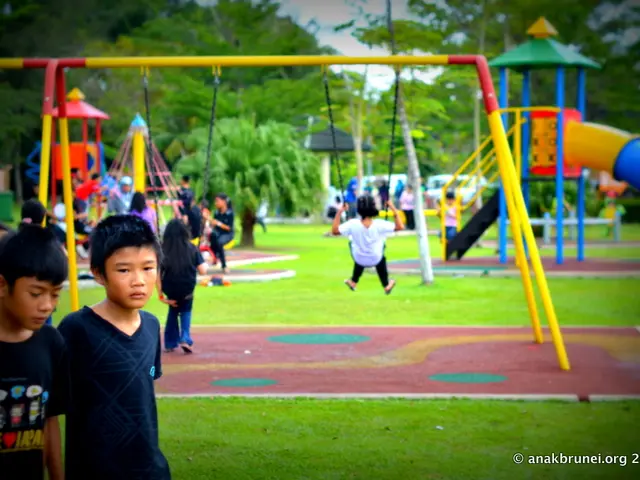Collapse of democracy in Georgia opens opportunities for Russia, China, and Iran
In the heart of the Caucasus region, Georgia, once a beacon of democracy and freedom for post-Soviet countries, is currently grappling with a severe democratic crisis. The ruling Georgian Dream (GD) party, led by billionaire Bidzina Ivanishvili, has been implementing authoritarian policies that mirror those of Russia, leading to a significant erosion of political freedoms, marginalisation of the opposition, and restricted civil society.
The government's decision to suspend efforts towards EU accession in November 2024, as warned by the US State Department, has made Georgia "more vulnerable to the Kremlin," according to the statement. This move has raised concerns about Russian influence and intelligence penetration in the country.
The GD leaders' relationship with the Trump administration was strained following a private letter described as "threatening, insulting, and unserious," which was not well received in Washington. However, Georgia has expressed a desire to "reinvigorate ties" with the US, with protesters filling Tbilisi's main street for over 200 days, carrying Georgian, American, and European Union flags.
The protests, mostly peaceful, have been met with new repressive legislation, with violators facing fines of up to the equivalent of $2,000. Reports of violent arrests and torture of protesters have been reported by Transparency International.
The Megobari Act, sponsored by Joe Wilson (Republican from South Carolina) and Jeanne Shaheen (New Hampshire Democrat), aims to counter the influence of China, Iran, and Russia in Georgia. The Act, if passed, would impose US sanctions, visa bans, and asset freezes on officials judged to be responsible for election fraud, corruption, and political repression in Georgia.
The investigation by Civic IDEA, a Georgia-based NGO, suggests that several Georgian-registered companies have direct links to Iran's Ministry of Defense and the Armed Forces Logistics Agency. The specific role of Iran in Georgia's democracy crisis is less clear, but given regional geopolitics, Iran likely represents another external factor impacting Georgia’s stability and democratic environment.
Russia's full-scale invasion of Ukraine in February 2022 has led the Georgian Dream to believe that the West is trying to drag Georgia into the war. This belief, coupled with concerns about Russian intelligence penetration and Chinese influence, has prompted the US to consider the passage of the Megobari Act to bolster democratic practices, human rights, and the rule of law in Georgia.
The influence of China remains significant, with Chinese-made facial recognition cameras installed by the government causing protesters to wear masks to avoid identification. The future of Georgian democracy hinges on overcoming this repression and reducing external malign influences through both internal unity and international support.
Giorgi Gakharia, a former prime minister of Georgia and a leader of the opposition party, is facing charges of treason and is currently outside of Georgia. His party states that upcoming municipal elections in October "may well be the last democratic battleground to halt Georgia's slide into authoritarianism."
In 2004, Georgia sent its soldiers to Afghanistan to join the International Security Assistance Force (ISAF), becoming the largest non-NATO contributor to the operation. As Georgia navigates these complex geopolitical pressures, it is crucial to remember its historical commitment to democratic values and its potential to once again serve as a model for post-Soviet countries.
- The erosion of political freedoms in Georgia is not limited to domestic issues, as concerns about Russian influence and intelligence penetration in the country have arisen, following the government's decision to suspend efforts towards EU accession.
- As Georgia's democracy faces challenges from both domestic and external sources, there have been calls for increased international support, with the Megobari Act being proposed to counter the influence of China, Iran, and Russia in the region.
- The future of sports, education, and self-development in Georgia could be impacted by the current political crisis, as the country navigates geopolitical pressures and strives to maintain its democratic values.
- The world watches as the events in Georgia unfold, with general news outlets reporting on war and conflicts, crime and justice, and the struggle for democracy, not only in Georgia but across the globe.




